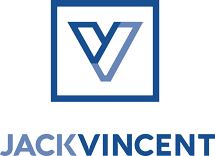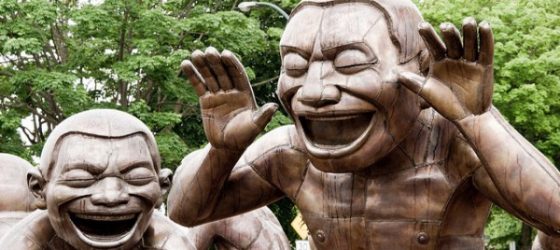Even if it’s just for one moment, the positive impact of humor on the human psyche draws people together, especially in tense negotiations. That moment can be pivotal. When everybody laughs, everybody is in agreement.
Here’s an Olympic example of why humor works in negotiations specifically, and in leadership generally.
# # #
The planning meeting took an unexpected turn.
What we thought would be a planning meeting turned into a tense negotiation. Actually, it was more than tense. It was about to explode.
We were in the new headquarters of the Atlanta Committee for the Olympic Games, planning the marketing programs for the quadrennial Worldwide Olympic Sponsorship program.
My former employer, ISL Marketing, managed and commercialized the sponsorships for the International Olympic Committee (IOC), which required close integration with each and every Organizing Committee of the Olympic Games, including Atlanta ’96.
My boss, Andrew Craig, led the charge for ISL Olympic Projects, which was responsible for much of the IOC’s revenue generation. I was honored to be a part of the team that Andrew had put together. It was culturally diverse, hard-working and acutely focused on the mission.
Atlanta had won the right to host the 1996 Olympic Summer Games a year earlier with much glee and jubilation.
Then fiscal reality set in.
The Games operating budget, as well as public opinion in Atlanta, were literally creating ulcers. Games CEO Billy Payne, a relationship and consensus builder who successfully drove the Host City Bid, soon realized he had to bring in a gunslinger of an operations person to run the actual Games, and he named A.D. Frazier as Chief Operating Officer.
A.D. knew how to play hardball. A Georgian native, he’d held several C-Level roles at major financial firms, including Chairman and CEO of the Chicago Stock Exchange. Now, in June 1992, four years before the Atlanta Games, A.D. was determined to gain every strategic advantage — to find every tactical dollar in revenue — for operating the Atlanta Games successfully.
So here we were in Atlanta, as marketers of the worldwide sponsorships and long-term caretakers of the Olympic Movement, expecting to help each other in our separate-but-related sponsorship marketing programs.
And that’s when things got ugly.
The meeting moved from constructive planning to tense negotiation as A.D. & Co. announced they were going to the U.S. sponsorship marketplace, offering the designation “Partner,” and that they did not want the IOC to grant that designation to its global sponsors.
As far as Atlanta was concerned, this was not a request. It was a given.
This could have a huge impact on the marketability of the respective sponsorship programs. Over the next hour, the tension mounted. Contracts were shuffled about. Sabers started rattling.
“We’re going to call our sponsors Partners,” Atlanta insisted, “and you’re not.”
ISL and the IOC were seen by the Americans as the effete Europeans, as Andrew used to say. Andrew’s proper English accent certainly added to the impression that we were refined, maybe even pushovers.
Meanwhile, the team from Atlanta seemed to be exaggerating their southern drawls, perhaps in an attempt at cowboy intimidation.
Over the next hour, the saber-rattling grew louder.
Then, deafening silence. A stare-down testosterone fest.
And that’s when it happened.
Andrew took off his reading glasses and held them toward one corner of his mouth, as a refined Englishman might do. The he leaned back.
“We’re going to call our sponsors… Big Swinging Dicks.”
You read that correctly. Big. Swinging. Dicks.
The meeting room exploded, alright… with laughter.
Everyone howled.
Everyone was smiling.
Indeed, a moment of levity… and connection.
And therein lies the power of humor.
Indeed, humor brightens the emotions.
Psychologists have shown that when we laugh, endorphins and other happy hormones are released into the nervous system. Such hormones are, among other things, fundamental to the human qualities of love and trust.
But more powerfully, I believe…
When everybody laughs, everybody is in agreement.
Everyone connects, even if it’s for just one moment. And that moment can be pivotal.
Humor is human.
Humor helps us see the human condition behind our own peculiarities that, perhaps, aren’t so peculiar.
Humor brings relief to our imperfections, to our failures, even to our selfishness. It can put thing into perspective in a sweet and, yes, loving way. “Our aspirations were too high,” or “Our troubles aren’t so unique,” or “We really are in this together.”
Some of the best conference presentations, the most inspiring TED Talks and even most Toastmasters International championship speeches weave in humor at key points… because humor touches us beyond rationale and psychologically gets us to “buy in.”
As attorney Richard Shore wrote for Forbes – Three Tricks That Make Negotiations Work, humor can establish you as a leader. “Telling a good joke can have a discernable impact on the dynamic of the negotiation. It allows you to take center stage and establishes you as a dominant force in the room. It will actually energize you. These effects can carry over quite favorably into the substantive negotiations that follow.”
Indeed, humor is a powerful tool in communication, leadership and even negotiations.
Big Swinging Dicks
As the eruption of laughter in the Atlanta meeting room lingered into giggles, Andrew kept a straight face, but exaggerated the effete European and English accent.
“BSDs,” he pondered aloud. “The Big Swinging Dicks of the Olympic Movement.”
He looked to some of us on the team. “I think that’s got a lovely ring to it.”
He looked across the table, straight-faced. “Don’t you, A.D.?”
A.D.’s armor had come off. His saber was back in its sheath, or perhaps it had fallen to the ground, because his head was in his hands in laughter.
It was the right joke for the right audience.
What made the joke even funnier was that it was specifically tailored for A.D., the financial guy.
A couple of years earlier, Michael Lewis had published Liar’s Poker, Rising Through The Wreckage on Wall Street. It described the life and times of bond traders on Wall Street, specifically within Solomon Brothers, where the boldest traders and biggest money-makers were known as BSDs.
“Certainly A.D. had read the book or, at least, had known the BSD expression,” Andrew later told me years later.
In fact, Andrew had shared Liar’s Poker with his team. The BSD term was in our active vocabulary, politically correct or not. This call-back (a stand-up comedy term) was sure to get a laugh from at least one side of the negotiation table.
Whether A.D.’s side of the table had read Liar’s Poker or not, Big Swinging Dicks was outrageous enough to get everybody’s attention, and a total surprise coming from the Europeans. And its context was completely aligned with the subject being negotiated.
It should be noted that there were women at the table, and they were laughing, as well. One woman lawyer for Atlanta, in fact, while trying to maintain an air of ladylike, was in tears… of laughter.
Subdue without fighting.
Lewis makes a great point in his book in fact, that sums this up. Quoting Sun-Tzu, he wrote, “The supreme art of war is to subdue the enemy without fighting.”
Of course negotiation is not about war, but it is about winning, hopefully for both sides in a win-win, but certainly about winning.
Humor bonds us with a purpose.
Andrew’s point in Atlanta was not just to be funny. “While it was said in humor, the underlying purpose,” Andrew told me recently, “was to change the dynamics in the room and make it very clear that we would not back down. I doubt that our American counterparts would have expected this in the middle of a tense discussion.
“The result was to create a degree of bonding between the teams, which led to a constructive resolution.”
It’s inevitable, in fact, that partnerships of this nature will not have tense moments. And while there were many tense discussions to come over the next four years, the partnership had reached a turning point that week in Atlanta.
When everybody laughs, everybody is in agreement, and everybody begins to trust, as well.
# # #
I help sales teams improve their performance by putting the “love” into the sales process. I also help leaders present with more impact and marketers tell their brand story with deeper connection.
I won’t bury your inbox, I promise. I usually post about once or twice a month.
Interested in the occasional tip for helping you win new customers and drive your top line? Sign up above in the right sidebar and get some love in your inbox.
# # #
Photo by Matthew Grapengieser

